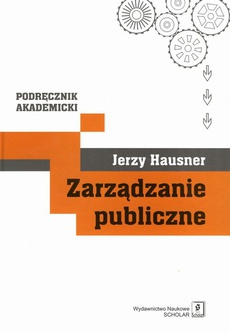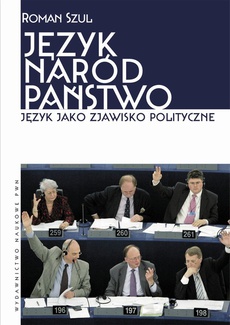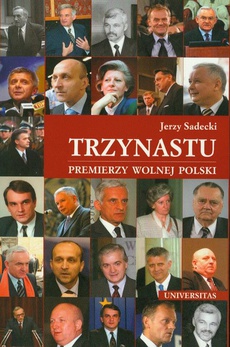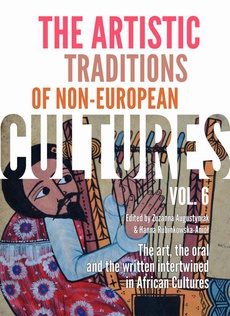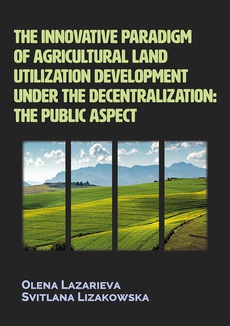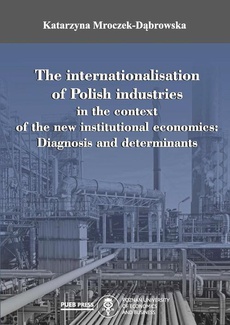POLECAMY
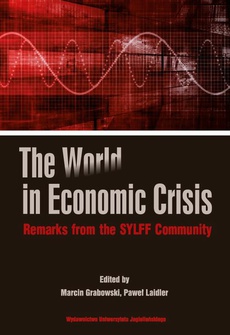
-33%
The World in Economic Crisis
Remarks from the SYLFF Community
Redakcja:
Format:
pdf, ibuk
The economic crisis initiated by the collapse of Lehman Brothers turned out stronger and broader than anyone expected. From banking and financial sectors in the U.S. it spread especially to Europe, and, to lesser extent, to Asia. Having in mind the meaning of the problem, Jagiellonian University SYLFF Fellows Association (JUSFA) decided to invite representatives of its counterparts from all around the world to a scientific conference Europe and the World in Crisis: Challenges and Opportunities. The conference became the main part of the 20lh anniversary of the SYLFF program at the Jagiellonian University. The celebrations took place in the Main Hall of Collegium Maius on September 7th, 2012. The main organizers of the event were the Nippon Foundation, the Tokyo Foundation, the Jagiellonian University SYLFF Steering Committee, and the Jagiellonian University SYLFF Fellows Association. Among honorable guests of the event were the representatives of the Tokyo Foundation and the Nippon Foundation with its President, Mr. Yohei Sasakawa, the son of Mr. Ryoichi Sasakawa, the principal funder of SYLFF who signed the documents in 1992 thus initiating a very successful scholarship program for M.A. and PhD. students. Other guests included the authorities of the University, with Rector Wojciech Nowak and Vice-Rector Andrzej Mania the members of JU Steering Committee and SYLFF Fellows from Poland and different countries. Based on the presentations from the conference and discussions followed, eight SYLFF fellows from five countries (Hungary, Indonesia, Latvia, Portugal, and Poland), decided to prepare set of papers analyzing both national and multilateral dimensions of the economic crisis, including its social, political or cultural ramifications. Peer reviewed papers were published in this monograph, becoming a contribution to future academic discussion of the Marcin Grabowski, Pawel Laidler
| Rok wydania | 2012 |
|---|---|
| Liczba stron | 143 |
| Kategoria | Politologia |
| Wydawca | Wydawnictwo Uniwersytetu Jagiellońskiego |
| ISBN-13 | 978-83-233-3554-2 |
| Język publikacji | angielski |
| Informacja o sprzedawcy | ePWN sp. z o.o. |
Ciekawe propozycje
Spis treści
| Ilona Baumane-Vitolina | 9 |
| Change Management Experience in the Baltic States | 9 |
| Introduction | 9 |
| Theoretical background of the research | 10 |
| Research methodology | 13 |
| Main findings | 15 |
| Baltic managers from a Western perspective | 18 |
| Conclusion and implementation for managers | 23 |
| References | 24 |
| João António Furtado Brito | |
| The Challenges of Economic Crisis in Portugal | 25 |
| Introduction | 25 |
| Economic growth, evolution of the Portuguese public accounts and outlook | 26 |
| Memorandum of Understanding – the economic adjustment programme | 36 |
| 1. Fiscal sector | 37 |
| 2. Financial sector | 38 |
| 3. Labor market sector | 38 |
| 4. Competition and business environment sector | 39 |
| Implementation of the economic adjustment programme | 40 |
| Conclusion | 41 |
| References | 41 |
| Reny Fitriana Kaban | |
| The World in Economic Crisis: What Are the Causes and the Impact on Asia, Particularly Indonesia? | 43 |
| Introduction | 43 |
| The causes of economic crisis | 44 |
| 1. The global financial crisis in 2008 | 44 |
| 2. The sovereign debt crisis of the euro area | 45 |
| Causes of European Union debt crisis | 47 |
| The European debt crisis: implications for Asia | 48 |
| Impact of the crisis | 49 |
| Public debt financing in Asia less at risk | 49 |
| Systemic implications for macroeconomic coordination in Asia and the Pacific | 52 |
| The Euro crisis and its impact on Indonesia’s economy | 54 |
| Conclusion | 55 |
| References | 56 |
| Marcin Grabowski | |
| Monetary Integration in Europe and Asia and Economic Crises | 57 |
| Optimum currency area | 58 |
| European monetary union and convergence criteria | 60 |
| Asian monetary integration? | 67 |
| Conclusion | 70 |
| References | 72 |
| Loretta Huszák | |
| Holistic Approach and Intellectual Property | 75 |
| 1. Economic crises and intellectual property | 75 |
| 2. IP and economic growth | 76 |
| 3. How are IPRs structured? | 79 |
| 4. NIPOs adapting to changing realities: the holistic approach | 84 |
| 5. Copyright issues in the portfolio of national IP offices | 85 |
| 6. Increased attention to enforcement issues among the NIPOs | 87 |
| 7. Innovation support and NIPOs | 90 |
| 8. Conclusion: a holistic approach in the administration of IPRs | 91 |
| References | 92 |
| Sarojini Imran | |
| Opportunities and Challenges for Tourism between European and Southeast Asian Countries | 95 |
| Introduction | 95 |
| Tourism in Europe | 97 |
| Economics in Southeast Countries | 99 |
| Top Ten Country/Regional Sources of Visitors to ASEAN as of 30 June 2012 | 101 |
| ASEAN Tourism Strategic Plan 2011–2015 | 104 |
| Analysis | 104 |
| Conclusion | 105 |
| References | 106 |
| Paweł Laidler | |
| The Economic Crisis in the 2012 U.S. Presidential Elections: Challenges and Expectations | 107 |
| References | 123 |
| Csaba Mate Sarnyai, Tibor Pap | |
| The Role of Dynamic Democracy in the Formation of Europe-level Solidarity and Identity | 127 |
| 1. Introduction | 127 |
| 1.1. Preliminary comments on the context | 127 |
| 1.2. A theoretically-minded lead-in | 128 |
| 1.3. The role of subsystem structures in the social inclusion of economy | 130 |
| 1.4. The possible roles of ‘state’ and politics in the process of Europeanization | 131 |
| 2. Models of interpretation | 133 |
| 2.1. The social-theoretical basis of the policies aiming at mitigating inequities | 133 |
| 2.2. Interactions between subsystems of society | 134 |
| 3. Dynamic democracy | 135 |
| 3.1. Ideal types of representational politics in the 19th and 20th centuries | 135 |
| 3.2. Changing trends in political representation at the turn of the millennium | 135 |
| 3.3. The inactivity of the EU and representation | 136 |
| 3.4. How is efficient EU-representation possible in popular democracies? | 137 |
| 4. The mutual irritations of subsystems: interpenetration of specific policies.... | 138 |
| 5. Summary | 139 |
| References | 140 |

